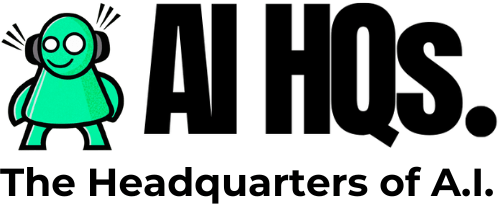AI Creates Fake Legal Cases, Causes Controversy
In recent legal developments, a concerning trend has emerged where attorneys, including those representing high-profile figures like Michael Cohen, have allegedly submitted court briefs containing fake case citations. This has raised questions about the increasing use of artificial intelligence (AI) tools in legal research and the potential consequences of relying on these technologies. Let’s delve into the details of the cases involving Michael Cohen’s lawyer, David M. Schwartz, and another legal team that faced fines for using AI-generated content.

In a startling revelation, a federal judge discovered that three cases cited by David M. Schwartz in a court brief on behalf of Michael Cohen did not actually exist. The motion, filed on November 29, 2023, sought early termination of supervised release for Cohen, claiming that recent district court decisions supported this request. However, the judge, Jesse Furman, determined that none of the mentioned cases, including United States v. Figueroa-Florez, United States v. Ortiz, and United States v. Amato, were real.
Judge Furman has ordered Schwartz to provide copies of the purported decisions by December 19, and if unable to do so, to explain why he should not face sanctions. This incident echoes a previous case where lawyers admitted to using ChatGPT to draft court filings with citations to non-existent cases, leading to a $5,000 fine.
The second case involves attorneys Steven Schwartz and Peter LoDuca, who faced a $5,000 fine and dismissal of their case after submitting court filings citing six fake cases generated by ChatGPT. The lawyers allegedly abandoned their responsibilities by advocating for these non-existent cases even after their authenticity was called into question.
The use of AI in legal research has become more prevalent, with attorneys turning to tools like ChatGPT for assistance. Schwartz admitted to relying on ChatGPT to supplement his legal research, unaware of the possibility that the content could be false. This case highlights the challenges and potential risks associated with integrating AI tools into the legal profession without proper verification mechanisms.
Federal Judge Kevin Castel, presiding over the ChatGPT-generated case, expressed his concern over the unprecedented circumstances where attorneys submitted court filings filled with citations to non-existent cases. The judge scheduled a hearing on June 8, requiring the attorneys and the law firm to show cause for potential sanctions.
The court is considering sanctions for the citation of non-existent cases, submission of copies of non-existent judicial opinions, and the use of false and fraudulent notarization. This case emphasises the need for a robust framework to govern the use of AI tools in legal research, ensuring ethical practices and accountability.
These incidents underscore the evolving landscape of legal research and the potential pitfalls associated with the use of AI-generated content. Attorneys and legal professionals must exercise caution and due diligence when incorporating AI tools into their practices. The consequences of relying on inaccurate information, as seen in these cases, can lead to fines, case dismissals, and damage to professional reputations.
Moreover, the legal community may need to reevaluate its ethical standards and guidelines concerning the use of AI in legal research. Establishing clear protocols for verifying information obtained through AI tools could mitigate the risks associated with the inadvertent submission of false or misleading content.
As technology continues to reshape the legal landscape, the intersection of AI and legal ethics becomes increasingly complex. The cases involving Michael Cohen’s lawyer and the attorneys using ChatGPT highlight the challenges and potential pitfalls when incorporating AI into legal practices. Striking a balance between leveraging technological advancements and upholding the integrity of the legal profession requires a collective effort from legal practitioners, bar associations, and regulatory bodies.
To delve deeper into this issue, it is crucial to understand the intricacies of AI-generated legal content. AI tools like ChatGPT use vast datasets to generate responses based on patterns and information present in the data. However, these tools lack the ability to independently verify the accuracy of the information they provide, relying solely on the input data.
Legal professionals using AI for research must recognize the limitations of these tools and implement rigorous fact-checking processes. While AI can streamline the research process by generating insights and suggesting relevant cases, the responsibility lies with attorneys to ensure the accuracy and authenticity of the information before presenting it to the court.
As the legal community grapples with the integration of AI, there is an ethical imperative to strike a delicate balance between innovation and responsibility. Attorneys must not only embrace the technological advancements that AI offers but also acknowledge the potential risks associated with its use.
One of the critical questions arising from these cases is whether the legal profession should establish specific guidelines for the use of AI in legal research. While AI can undoubtedly enhance efficiency and provide valuable insights, the lack of transparency and accountability in certain instances raises concerns about its ethical implications.
Professional organisations and bar associations may need to play a pivotal role in developing guidelines and best practices for incorporating AI into legal workflows. This could include recommendations on the verification of AI-generated content, ethical considerations when using such tools, and potential consequences for the submission of inaccurate information to the courts.
An essential component of addressing the challenges posed by AI in legal research is education. Legal practitioners need access to comprehensive training programs
that equip them with the knowledge and skills to navigate the complexities of AI-generated content responsibly.
Law schools and continuing legal education programs should integrate modules on AI ethics and usage guidelines into their curricula. Attorneys should be well-versed in the capabilities and limitations of AI tools, fostering a culture of accountability and diligence in the legal profession.
The incidents involving fake citations in legal cases underscore the need for collaboration among stakeholders in the legal ecosystem. Attorneys, technologists, legal scholars, and regulatory bodies must work together to establish a framework that ensures the responsible use of AI in legal research.
Collaborative efforts can lead to the development of standardised protocols for the integration of AI in legal practices. This includes guidelines on sourcing information, verifying the authenticity of AI-generated content, and implementing ethical considerations throughout the legal research process.
As the legal profession grapples with the implications of AI in legal research, it is imperative to chart a responsible path forward. The cases involving Michael Cohen’s lawyer and the ChatGPT-generated content serve as cautionary tales, emphasising the need for a proactive approach to ethical considerations in the age of AI.
Legal practitioners must be vigilant in their use of AI tools, recognizing them as valuable aides that require careful oversight. By establishing robust guidelines, fostering educational initiatives, and promoting collaboration, the legal community can harness the benefits of AI while upholding the principles of accuracy, transparency, and ethical conduct that form the bedrock of our judicial system. In doing so, the legal profession can navigate the intersection of AI and legal ethics with integrity and foresight, ensuring a harmonious integration of technology and tradition in the pursuit of justice.
for all my daily news and tips on AI, Emerging technologies at the intersection of humans, just sign up for my FREE newsletter at www.robotpigeon.beehiiv.com






